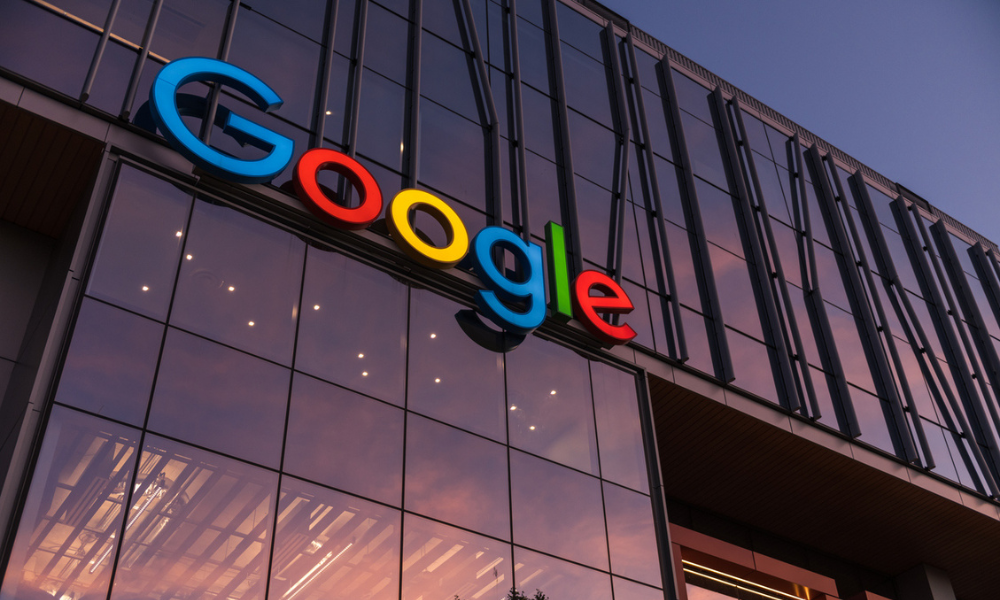Google shares drop on the news

The US Department of Justice is considering breaking up Alphabet Inc.'s Google following a landmark court ruling that found the company has monopolized the online search market, according to sources familiar with the discussions.
According to a report by BNN Bloomberg, this potential move would mark Washington’s first attempt to dismantle a company for illegal monopolization since the failed efforts to break up Microsoft Corp. two decades ago.
Less drastic measures being considered include requiring Google to share more data with competitors and preventing it from gaining an unfair advantage in the development of AI products.
Alphabet’s shares dropped 3.8 percent in New York following the ruling by a federal judge on August 5, which confirmed that Google holds an illegal monopoly in the search market.
While Google plans to appeal the decision, the judge has ordered both parties to prepare for the second phase of the case, which will explore the government’s proposals for restoring competition, potentially including a breakup of the company.
The Justice Department is also likely to push for a ban on the exclusive contracts at the core of its case against Google. If a breakup is pursued, the most likely candidates for divestment are the Android operating system and Google’s Chrome browser.
Another possible target for divestment is Google’s AdWords platform, which is used to sell text advertising.
The Justice Department’s discussions have intensified since Judge Amit Mehta’s ruling on August 5, which concluded that Google illegally monopolized the online search and search text ad markets.
Although Google has indicated its intent to appeal, Mehta has instructed both parties to begin planning for the second phase of the case, which will involve government proposals for restoring competition, possibly including a breakup request.
A Google spokesperson declined to comment on potential remedies, and the Justice Department has also not provided any comment.
Should the US plan for a breakup, it would require approval from Judge Mehta, who would then direct the company to comply. If enforced, this would be the most significant breakup of a US company since the dismantling of AT&T in the 1980s.
Justice Department attorneys have expressed concerns that Google’s dominance in search gives it an unfair advantage in developing AI technology.
They have suggested that the government might seek to prevent Google from compelling websites to allow their content to be used in AI products in order to appear in search results.
Divesting the Android operating system, which is used on approximately 2.5 billion devices worldwide, is among the remedies most frequently discussed by Justice Department attorneys.
In his ruling, Judge Mehta found that Google requires device manufacturers to sign agreements that grant access to its apps like Gmail and the Google Play Store.
These agreements also mandate that Google’s search widget and Chrome browser be installed on devices in a manner that prevents other search engines from competing.
Mehta’s ruling follows a December verdict by a California jury, which determined that Google monopolized the distribution of Android apps. The judge in that case has yet to determine the appropriate relief.
The Federal Trade Commission (FTC), which also enforces antitrust laws, recently filed a brief in the case, stating that Google should not be allowed “to reap the rewards of illegal monopolization.”
Google has paid up to $26bn to ensure its search engine remains the default on various devices and web browsers, with $20bn of that amount going to Apple Inc.
Mehta’s ruling also concluded that Google monopolized search text ads, which are displayed at the top of search results pages and are sold through Google Ads (formerly known as AdWords).
These ads are a significant revenue source for Google, accounting for more than $100bn in 2020, according to testimony from last year’s trial.
If the Justice Department does not pursue a divestment of AdWords, it might require interoperability requirements to ensure the platform works seamlessly with other search engines.
Another possible remedy involves requiring Google to divest or license its data to competitors, such as Microsoft’s Bing or DuckDuckGo. Mehta’s ruling found that Google’s contracts ensure it receives the most user data, 16 times more than its closest competitor.
This data advantage prevents rivals from improving their search results and competing effectively.
Similar digital gatekeeper rules in Europe have required Google to share some data with third-party search engines. However, Google has argued that sharing data can raise privacy concerns, and it only provides information on searches that meet specific thresholds.
Historically, remedies in similar cases have included requiring monopolists to grant competitors access to certain technologies. In the Justice Department’s first case against AT&T in 1956, the company was required to provide royalty-free licenses to its patents.
Similarly, in the antitrust case against Microsoft, the company was required to make certain application programming interfaces (APIs) available to third parties.
For years, websites have allowed Google’s web crawler to access their content to ensure it appears in search results. More recently, some of this data has been used to help Google develop its AI technology.
In response to complaints, Google created a tool last fall to allow websites to block scraping for AI purposes. However, this opt-out does not apply to all cases.
In May, Google introduced “AI Overviews” which provide narrative responses to certain searches, eliminating the need to click through multiple links. These AI-powered summaries appear below search queries, offering information drawn from Google search results across the web.
Google does not allow website publishers to opt-out of appearing in AI Overviews, as these are considered a feature of search rather than a separate product. Websites can block Google from using snippets, but this action would apply to both search and AI Overviews.
Although AI Overviews are currently used in a small percentage of searches, their rollout has faced challenges, including some cases where excerpts provided inaccurate or embarrassing suggestions, such as advising people to eat rocks or put glue on pizza.



